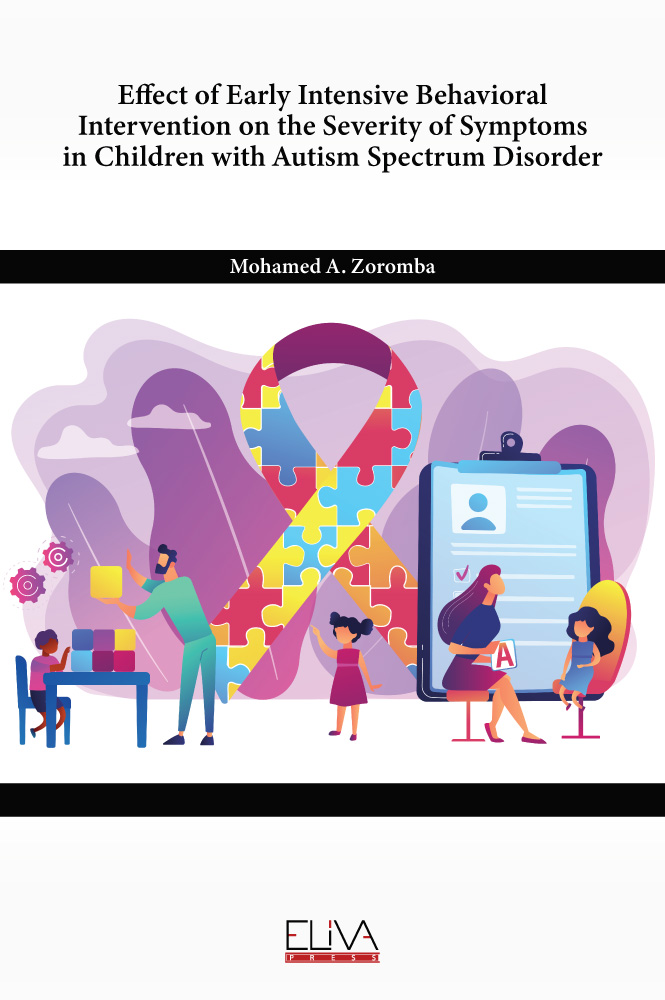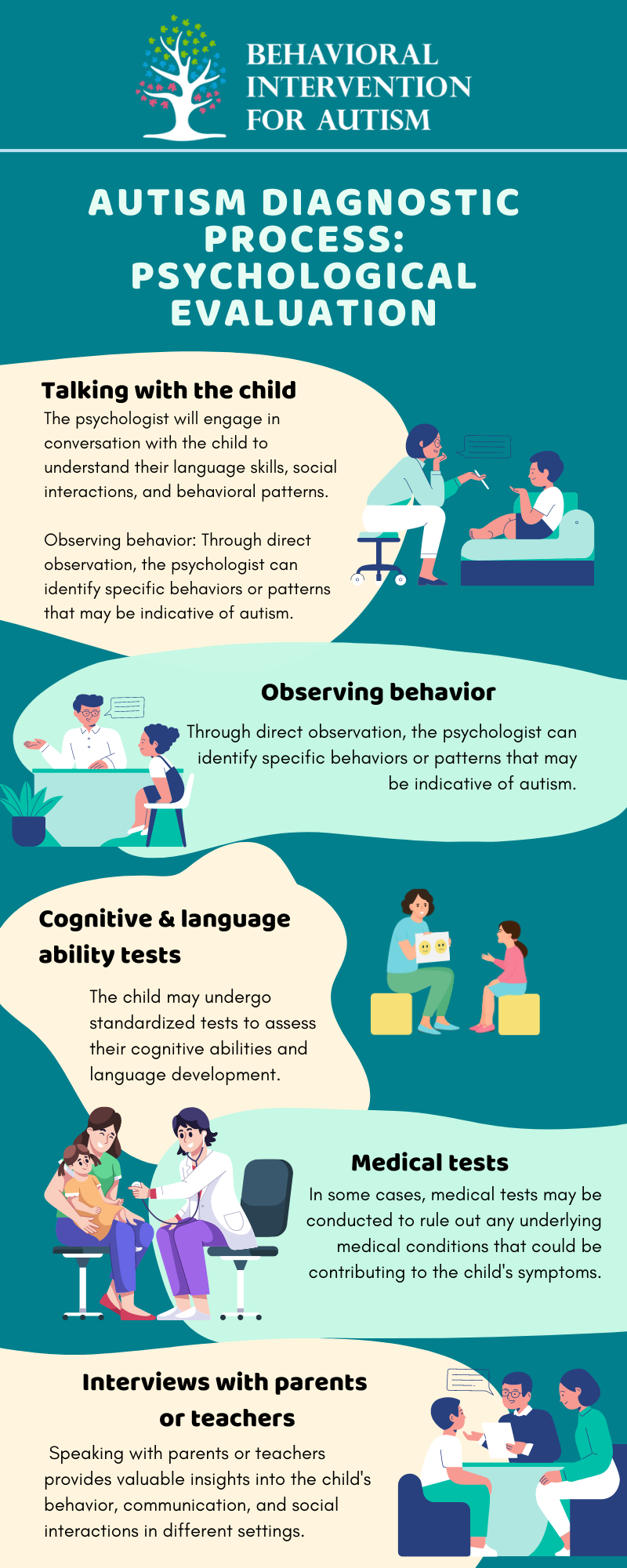Essential checklist for working with Autism Spectrum Therapies providers
Recognizing the Influence of Behavioral Autism on Day-to-day Live and Social Interactions
You could not recognize how deeply behavioral autism influences day-to-day live and social interactions. Individuals on the range typically navigate a globe loaded with interaction obstacles and sensory overload. These difficulties can result in disappointment and seclusion, influencing their connections and total well-being. Comprehending these nuances is essential for promoting helpful atmospheres. What approaches can we implement to create more inclusive areas and significant links? The solutions could stun you.
Specifying Behavioral Autism and Its Features
Behavioral autism, often referred to as autism spectrum problem (ASD), incorporates a series of conditions characterized by difficulties in social communication, interaction, and repetitive habits. You may discover that individuals with ASD usually struggle to translate social signs, which can cause misunderstandings in discussions. They may locate it hard to establish eye contact or involve in small talk, making social circumstances really feel overwhelming.
Communication troubles can show up in various methods, from postponed speech development to a choice for making use of less words. By recognizing these qualities, you can promote a setting that advertises approval and encourages effective communication, helping individuals with autism flourish in their everyday communications.
The Spectrum of Autism: Recognizing Variability in Behavior
Autism spectrum disorder (ASD) isn't a one-size-fits-all diagnosis; it varies widely among people. You might encounter individuals who are extremely verbal and engage conveniently in conversations, while others might choose solitary activities or communicate non-verbally.
Furthermore, the means people with ASD react to sensory input can differ substantially; some may be bewildered by bright lights or loud noises, whereas others prosper in stimulating settings. The range likewise consists of distinctions in social interactions; some people might struggle to analyze social signs, while others navigate social setups with relative convenience. Understanding this irregularity is crucial, as it assists you appreciate everyone's special experience and tailor support to their details requirements, fostering a much more comprehensive setting for everyone.
Interaction Obstacles Encountered by Individuals With Autism
When you connect with individuals on the autism spectrum, you may observe their unique communication difficulties. They frequently deal with troubles with both nonverbal and verbal hints, which can influence their social communications. Understanding these barriers is vital for cultivating far better links and assistance.

Verbal Interaction Troubles
Numerous individuals on the autism spectrum experience verbal communication problems that can substantially impact their everyday communications. You might discover it challenging to express your thoughts, feelings, or needs clearly. This can result in irritation for both you and those around you, as misconceptions take place. You might deal with initiating conversations, maintaining a subject, or understanding nuances in speech. Typically, you may choose making use of basic language or repeated phrases, which can limit your ability to take part in much deeper conversations. Your tone, pace, or quantity may not line up with social expectations, creating others to misinterpret your intentions. Acknowledging these difficulties can assist you and your assistance network establish techniques to boost communication and foster far better links with others in your life.
Nonverbal Interaction Barriers
Verbal interaction isn't the only challenge people on the autism spectrum face; nonverbal communication obstacles can be equally as considerable. You could locate it challenging to analyze body language, face expressions, and eye get in touch with, which are important for effective interaction. These challenges can cause misunderstandings or misconceptions of social signs, making communications really feel frustrating or confusing. You might have a hard time to share your very own emotions through nonverbal means, leaving others unclear of your feelings or intents. This detach can develop sensations of isolation and aggravation. Acknowledging these obstacles is essential for cultivating understanding and empathy in your interactions. By attending to nonverbal interaction, you can find techniques to boost your social experiences and boost your overall lifestyle.
Social Communication Influences
Social interactions can commonly really feel frustrating as a result of the unique interaction difficulties faced by individuals with autism. You might battle with analyzing social hints, making it difficult to understand mockery or body language. This can result in misunderstandings or uncomfortable moments in conversations. In addition, launching and keeping conversations might really feel tough, triggering stress and anxiety in social circumstances. You may like structured environments, making spontaneous interactions unpleasant. It's also usual to experience difficulty in participating in little talk, which can prevent forming new friendships. Acknowledging these challenges can assist you locate strategies to improve communication, such as practicing social skills in secure setups or utilizing aesthetic help - Aba Therapist. Comprehending your demands enables you to browse social interactions with higher self-confidence and ease.
Social Interaction and Partnership Structure in Autism
While structure relationships can be challenging for people with autism, understanding their distinct perspectives and communication styles can cultivate significant connections. You might observe that lots of people on the range choose straight interaction and might deal with social hints or tiny talk. By being simple in your communications, you can aid create a setting where they really feel comfortable.
Make the effort to pay attention and observe how they reveal themselves. This understanding can guide you in guiding conversations better. Involving in shared interests can also act as a bridge to deeper links. Whether it's a hobby, a favorite program, or a common interest, these common threads can open doors to relationship.
Day-to-day Live Regimen: Browsing Difficulties and Techniques
Navigating daily life routines can be specifically challenging read the full info here for individuals with autism, specifically when unanticipated changes occur. To browse these challenges, take into consideration applying visual timetables or checklists.
Developing a regimen that includes sensory breaks can also be beneficial. This assists create an understanding atmosphere.
Finally, method mindfulness methods to take care of stress and anxiety and stress and anxiety. Easy breathing workouts or grounding techniques can make a substantial distinction. By including these methods, you can enhance your daily routine and decrease disturbances, making life really feel more manageable.
Strengths and Capacities of People on the Autism Spectrum
Understanding day-to-day life regimens is simply one element of the autism experience. Numerous individuals on the autism spectrum possess amazing staminas and abilities that establish them apart.
Furthermore, your memory skills often radiate, especially in locations of passion. Autism Therapist. This propensity for preserving info can make you a useful resource in areas like modern technology, art, or scientific research. You might likewise display strong aesthetic reasoning, enabling you to visualize intricate ideas and solve troubles artistically
Furthermore, your special point of view on the world can promote empathy and understanding in others, improving social interactions. Embracing these strengths not only improves your self-confidence yet also aids others value the diverse abilities you give the table.
Creating Comprehensive Environments for People With Autism
Producing comprehensive atmospheres for individuals with autism begins with designing sensory-friendly spaces that deal with their special requirements. You can likewise cultivate chances for social interaction, aiding to build friendships and links. By making these modifications, you'll add to an extra welcoming environment for everybody.
Creating Sensory-Friendly Spaces
While making sensory-friendly rooms, it's crucial to mirror on the one-of-a-kind demands of people with autism. Integrate quiet areas where people can retreat and reenergize when overwhelmed. Include aesthetic timetables or clear signage to help people navigate the space with confidence.
Advertising Social Interaction Opportunities
Creating sensory-friendly areas not only addresses specific comfort but additionally establishes the stage for purposeful social interactions among individuals with autism. To promote these communications, produce comprehensive atmospheres that invite engagement. Organize organized activities, like art courses or team video games, that motivate collaboration without frustrating sensory input. Usage aesthetic help and clear communication to assist everyone involve easily. Urge peer mentoring, pairing individuals with autism with supportive peers who can guide them with social circumstances. Furthermore, think about holding normal area occasions that commemorate neurodiversity, cultivating acceptance and understanding among all individuals. By executing these methods, you can boost social possibilities, aiding individuals with autism develop friendships and enhance their social abilities in a safe, welcoming environment.

Regularly Asked Concerns
Exactly How Can Buddies Assistance A Person With Behavioral Autism?
You can support a buddy with behavior autism by being client, listening actively, and appreciating their limits. Involve in activities they appreciate, interact openly, and develop a comfy atmosphere where they feel valued and recognized.
What Resources Are Readily Available for Moms And Dads of Kid With Autism?
You can discover various resources for moms and dads of youngsters with autism, consisting of support teams, instructional web sites, and regional social work. Linking with other moms see this here and dads can likewise offer valuable understandings and shared experiences to assist navigate difficulties.
Can Behavioral Autism Modification With Time?

Yes, behavior autism can transform with time. You may see shifts in interaction, social skills, and habits as your youngster grows. Early intervention and support usually play crucial duties in these developmental modifications.
Exactly How Do Sensory Level Of Sensitivities Influence Life?
Sensory level of sensitivities can make day-to-day experiences overwhelming. You may battle with loud noises or intense lights, resulting in tension or evasion. Finding environments that suit your needs can considerably boost your comfort and general everyday life.
What Prevail Misconceptions Concerning Behavioral Autism?
You may believe behavior autism just influences interaction abilities, but it's more complex. Numerous think people do not have compassion or knowledge, which isn't true. Recognizing these false impressions aids foster acceptance and support for those on the range.
Behavioral autism, commonly referred to as autism spectrum disorder (ASD), incorporates a variety of problems identified by difficulties in social communication, communication, and recurring habits.Social communications can commonly feel overwhelming due to the distinct communication obstacles faced by individuals with autism.Designing sensory-friendly rooms not only addresses individual convenience yet additionally sets the phase for purposeful social interactions among individuals with autism. Encourage peer mentoring, pairing people with autism with helpful peers that can his response lead them via social circumstances. By executing these methods, you can improve social opportunities, helping people with autism construct friendships and reinforce their social skills in a risk-free, inviting atmosphere.